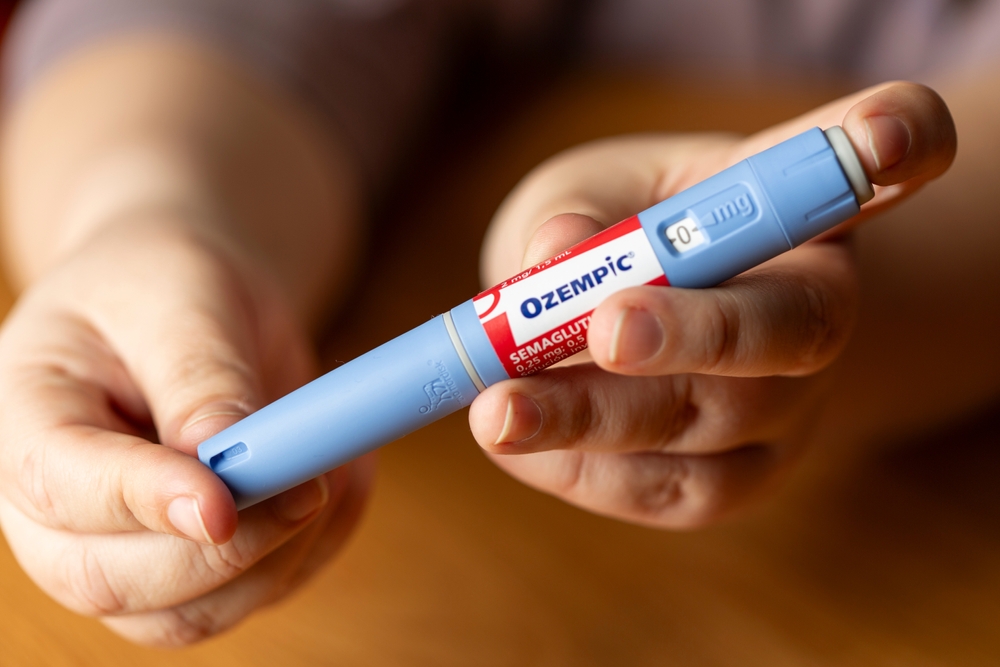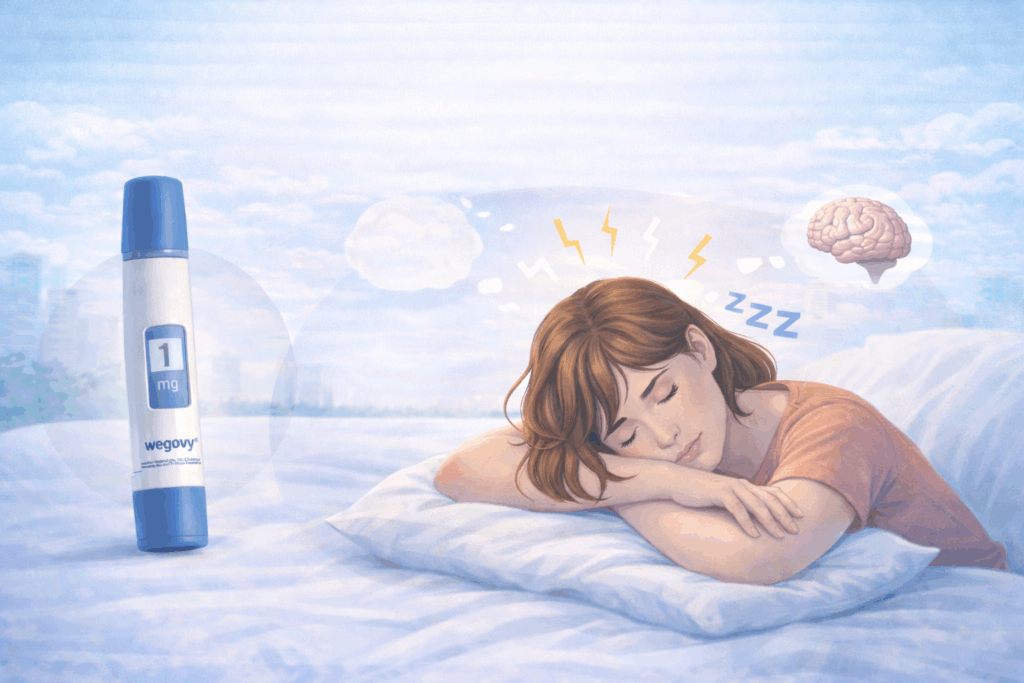Quick Answer: While Ozempic (semaglutide) isn’t directly linked to causing hair loss, some people taking it may notice increased shedding or thinning — often due to rapid weight loss, hormonal changes or nutrient deficiencies that can temporarily affect the hair growth cycle.
The Connection Between Ozempic and Hair Loss
Ozempic has quickly become one of the most discussed medications in recent years, with dedicated news sections from high-profile news companies. It’s known for its impressive weight loss benefits and blood sugar regulation in people with type 2 diabetes. Yet, as more people start using it, there’s been growing curiosity — and concern — about whether Ozempic could cause hair loss.
Ozempic itself is not known to directly trigger hair loss. However, the circumstances surrounding its use — such as significant and rapid weight loss — can play a big role in hair shedding. Let’s break down what’s really happening and why some users report changes in their hair.
How common is hair loss from Ozempic?
Hair loss among Ozempic users is not considered a common side effect. Clinical trials and official prescribing information for semaglutide don’t list hair loss as a direct adverse reaction. However, since its popularity has surged for weight loss, anecdotal reports on social media and forums suggest that some people notice temporary shedding after starting the medication.
This phenomenon isn’t unique to Ozempic — it’s been seen with many rapid weight loss programs and other appetite-suppressing medications. When the body goes through sudden metabolic changes, it can shift resources away from nonessential functions like hair growth, leading to a temporary shedding phase known as telogen effluvium.
Factors that increase hair loss risk
Hair loss during Ozempic treatment usually isn’t from the drug itself but from what’s happening inside the body as it adjusts, encompassing several factors.
| Factor | How it contributes to hair loss |
| Rapid weight loss | Quick drops in body weight can shock the system, leading to telogen effluvium. |
| Nutrient deficiencies | Inadequate intake of protein, iron, zinc, or biotin affects hair strength and growth. |
| Hormonal changes | Weight loss and reduced body fat can impact estrogen and thyroid levels. |
| Stress | Physical and emotional stress can push more hair follicles into the shedding phase. |
| Underlying health issues | Conditions like thyroid disease or anaemia can worsen hair loss. |
Most of these triggers are reversible, and once the body stabilises and nutrients are replenished, hair typically grows back within a few months.
Symptoms of hair loss linked to Ozempic
While hair loss can look different from person to person, those who experience it while using Ozempic often report the following symptoms:
Thinning hair on the scalp
One of the earliest, easiest-to-spot signs of medication-related shedding is a noticeable reduction in hair volume, especially around the crown or part line. You may not see bald spots, but the hair can feel lighter and less dense.
Increased hair shedding
Seeing more hair in your brush, shower drain or on your pillow can be alarming, but it’s usually temporary. This shedding often occurs two to three months after major body changes, such as weight loss, surgery, or illness.
Slower hair growth
During telogen effluvium, many hair follicles pause growth for several months. Even as shedding stops, it can take time for the growth cycle to fully restart.
Patchy bald spots
Though less common, some people report patchy areas or uneven thinning. This may occur if nutritional deficiencies are severe or if an autoimmune component is involved. Medical assessment is important to rule out conditions like alopecia areata.
Changes in hair texture
Some people find their hair becomes finer, drier, or more brittle while on Ozempic or other weight loss medications. This can result from changes in hydration, diet or hormonal shifts that affect the scalp’s natural oil production.
How to protect your hair while taking Ozempic
Hair loss linked to weight loss or medication-induced stress is typically temporary. There’s a lot you can do to support regrowth and prevent further shedding.
Nutritional support
Hair health starts from within. Since many Ozempic users eat less due to appetite suppression, maintaining balanced nutrition becomes crucial.
- Protein. Hair is primarily made up of keratin, a type of protein. If your protein intake drops too low, the body prioritises essential organs over hair follicles, leading to thinning. Make sure to include plenty of protein in your meals.
- Iron and zinc. Iron deficiency, especially common in women, can accelerate shedding, while zinc deficiency can slow down regrowth. Pair iron-rich foods like spinach or beans with vitamin C for better absorption.
- Biotin and vitamin B12: Both are linked to strong, healthy hair and scalp circulation. If you follow a plant-based diet, you may need to supplement B12 to avoid deficiencies.
- Vitamin D: Low vitamin D levels have been linked to hair thinning and poor follicle activity. Consider safe sun exposure or supplements if your levels are low.
- Omega-3 fatty acids: Omega-3s, found in fish, nuts and seeds, reduce inflammation and improve scalp health. They also support natural oil production, helping prevent dry, brittle hair.
If you struggle to meet your nutritional needs solely through food, talk to your doctor about a high-quality multivitamin or a targeted supplement. A dietitian can also help you build a meal plan that supports weight management and hair growth.
Hair care tips
Gentle, consistent care makes a big difference in preserving the hair you have while encouraging regrowth. Even if your diet is balanced, external stressors can weaken hair over time, so adopting healthy habits matters.
- Avoid tight hairstyles. Styles that pull on the hairline, like ponytails or buns, can cause breakage. Opt for loose styles or silk scrunchies that reduce tension.
- Minimise heat styling, Limit use of straighteners, curling irons, and blow dryers to prevent additional stress on weakened strands. When you do use them, apply a heat protectant first.
- Use a mild shampoo and conditioner. Choose sulfate-free formulas to avoid stripping the scalp of natural oils. Look for products that include keratin, niacinamide or argan oil to restore strength.
- Regular scalp massage. Massages improve blood flow to the follicles, supporting healthy growth. You can enhance it with a few drops of rosemary or peppermint essential oil, both known for their stimulating effects.
- Stay consistent. Topical treatments like minoxidil or natural alternatives like caffeine-based serums can help, but they require consistent use to show results.
- Don’t panic-shed. Overbrushing or frequently checking for hair loss can create unnecessary tension and damage. Treat your hair gently and trust the process.
Lifestyle factors
Holistic care is equally important when managing the effects of medication on your body. Hair health reflects your overall well-being, and minor lifestyle adjustments can have a powerful impact.
- Manage stress. Chronic stress triggers cortisol release, which can shorten the hair growth phase. Incorporate calming practices such as yoga, deep breathing, or mindfulness journaling to help regulate stress hormones.
- Stay hydrated. Dehydration can make hair appear dull and fragile. Aim for at least 1.5–2 litres of water per day and add electrolyte-rich drinks if you’re exercising regularly.
- Sleep well. Your body restores and regenerates overnight – including hair follicles. Poor sleep disrupts hormonal balance, slowing recovery.
- Get regular blood tests. Especially if you’re losing weight quickly, it’s wise to check your nutrient levels and thyroid function every few months.
- Avoid crash dieting. Sustainable weight loss reduces the risk of triggering telogen effluvium. Focus on gradual, consistent progress rather than extreme restriction.
- Monitor hormone levels. If you notice persistent changes such as fatigue, irregular periods or dry skin, consult your doctor to check thyroid, estrogen and testosterone levels.
Extra supportive measures
For those experiencing ongoing shedding, additional therapies can help support healthy hair growth.
- Low-level laser therapy (LLLT). At-home laser caps or combs stimulate follicles and improve thickness over time.
- Platelet-rich plasma (PRP) treatments. This involves using your own plasma to encourage new growth and improve scalp health.
- Scalp exfoliation. Removing buildup helps follicles breathe and absorb nutrients better.
- Professional consultation. A dermatologist or trichologist can identify your hair type and suggest tailored treatments or products.
Many patients find that by maintaining steady weight loss and supporting their overall health, any temporary hair loss reverses naturally within 6–9 months. The key is patience and understanding that healthy hair growth is a gradual process.
When to see a doctor
If your hair loss feels excessive, lasts longer than six months, or is accompanied by other symptoms, it’s time to seek medical advice.
A doctor or dermatologist can:
- Evaluate for nutrient deficiencies (iron, zinc, vitamin D, B12)
- Assess thyroid and hormone levels
- Rule out underlying conditions like alopecia or autoimmune disorders
- Recommend treatments like topical minoxidil or low-level laser therapy if needed
Sometimes, a minor dosage adjustment or temporary pause in treatment may be enough to help your body recalibrate – but this should always be done under medical supervision.
Mastering weight loss with The Virtual Slimming Clinic
While Ozempic and other injected weight-loss treatments don’t directly cause hair loss, they can set the stage for it through rapid weight loss, hormonal shifts, and nutrient depletion. The good news is that this kind of shedding is usually temporary, and hair typically regrows once your body adapts.
The best approach is a proactive one – nourish your body, care for your scalp, and monitor your overall health while using Ozempic. For more insights into the world of weight loss treatments or to take the first steps on your own journey, visit The Virtual Slimming Clinic today.
Frequently Asked Questions
Does everyone experience hair loss on Ozempic?
No. Most people taking Ozempic don’t experience hair loss. When it does occur, it’s typically mild and temporary. The key factor tends to be how quickly you lose weight and whether your diet remains nutritionally complete.
How soon might hair loss appear?
Hair shedding typically begins around two to three months after the body undergoes a significant change, such as rapid weight loss or stress. If you notice increased shedding after starting Ozempic, it’s likely due to telogen effluvium rather than the drug itself.
Is Ozempic hair loss temporary or permanent?
For most users, it’s temporary. Once the body adjusts to its new weight and nutrient intake, the hair growth cycle normalises. Regrowth can start within 3–6 months, with visible improvement by the one-year mark.
Can diet prevent hair loss while on Ozempic?
A balanced diet rich in protein, iron, vitamins and healthy fats is always best. If your appetite is reduced, consider nutrient-dense smoothies or supplements to ensure your body gets what it needs for both health and hair.
Should I stop Ozempic if I notice hair loss?
Not necessarily. In most cases, hair loss isn’t a reason to stop taking Ozempic. However, always consult your healthcare provider if shedding becomes severe or distressing.














